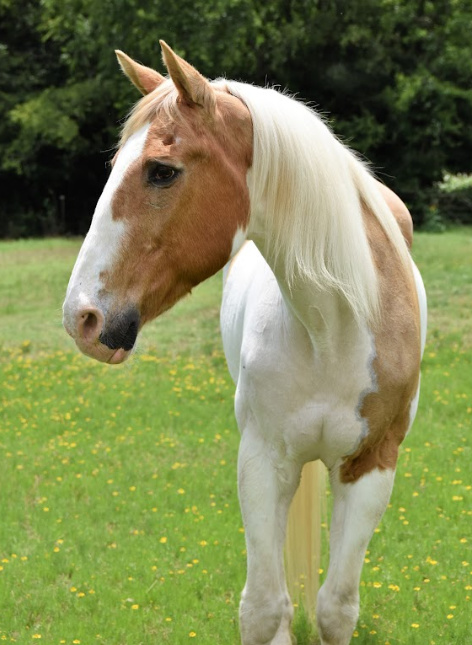Luck, mostly.
I have a Rocky Mountain mare that I bought at a sheriff’s auction 19 years ago. She and the rest of her herd had been starved and then seized by the sheriff. They re-fed the horses for about a month, until the court case was over (guilty!) and they were stable. I bought her for $50.
She’s somewhere in her 30s, we think. We had fun in the pasture and trips around the neighborhood. We went to several horsemanship, ranch riding and 4H clinics. We gathered cattle a couple times on a ranch. She has always been very round, zaftig like Miss Piggy. She’s only fed a handful of low starch pellets - so she doesn’t feel left out - and coastal hay. That’s all she’s ever had with us. And grass, when it’s available - we live in the desert.
She’s had a comfortable, low stress life with us, on a dry lot and never stalled. She has horse and donkey companionship. I haven’t ridden her in about six years because - call me crazy - one day she told me she didn’t want to anymore and that was it. Her hocks are a little stiff and she plays less these days but most folks would put her in her 20s or late teens, probably. Great barefoot hooves. No supplements and no more vaccines, after she did poorly with them a few years ago.
She’s the only Rocky Mountain horse in this region, says the vet. She looks like a little round Morgan and has been a hardy thing, only colicking a couple times when she got into a new roundbale and ate herself silly. I’d happily have another of the breed. She’s built right for a long life, too. Four feet very squarely on the ground, if that makes sense. Sturdy-looking. Big plain head, huge eyes. Not tall, just 14 hands. Her body runs very economically, not needing much to stay healthy.
She’s always been an optimist in personality, also - curious and friendly, interested in people and their doings, assuming everything is always good, but able to state her opinions and stand her ground with animals and people alike. I think her optimism helps with her longevity.

